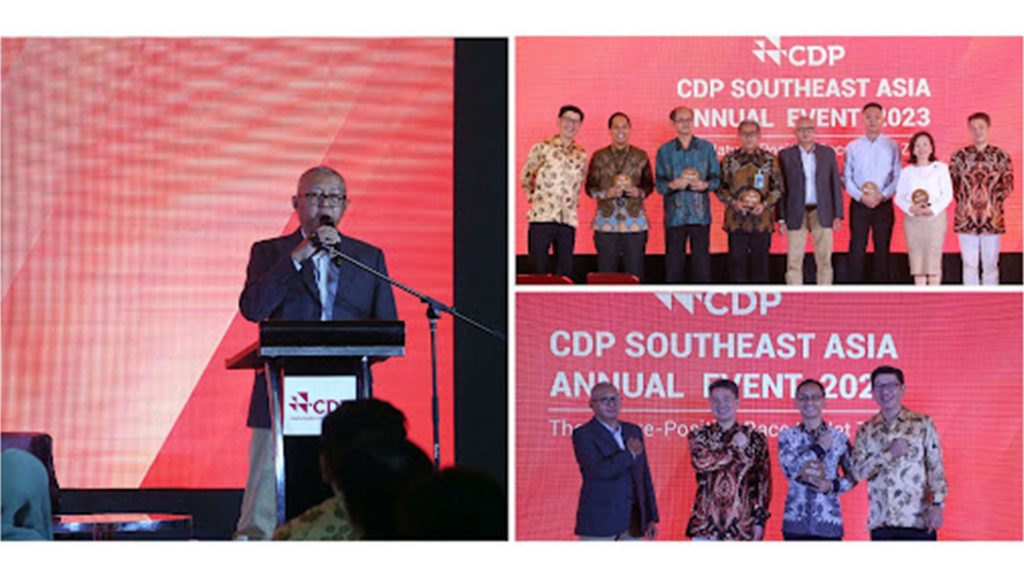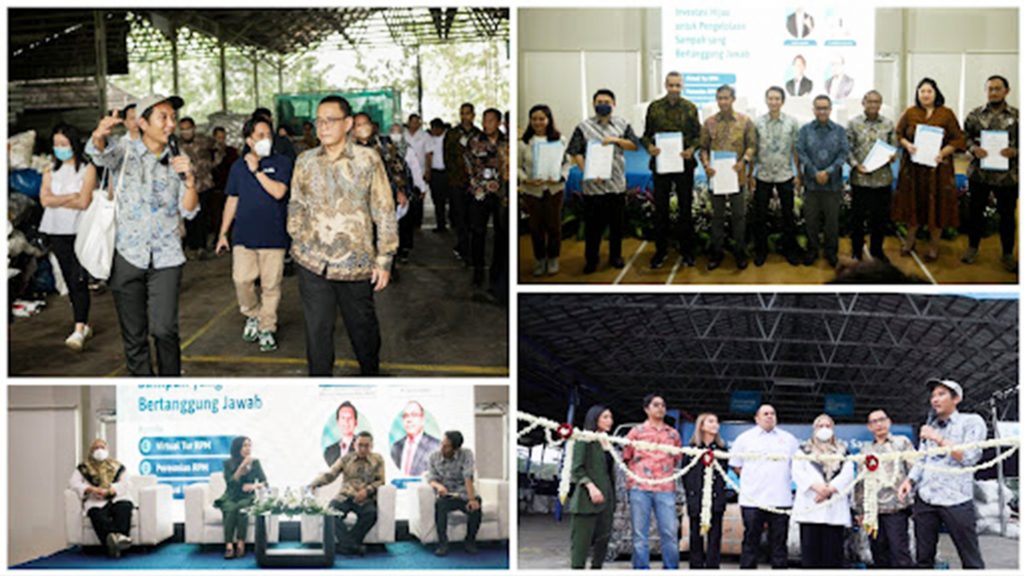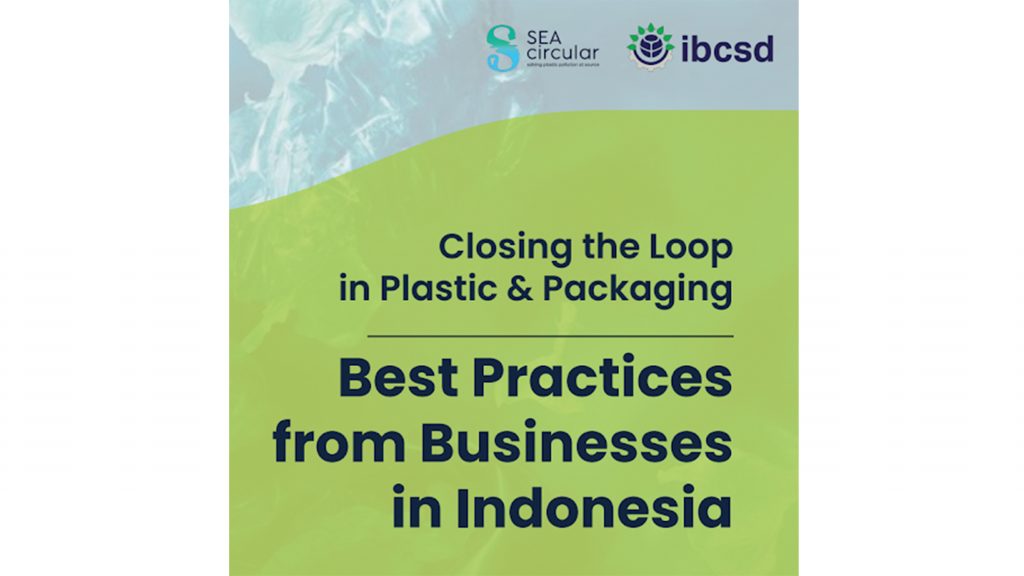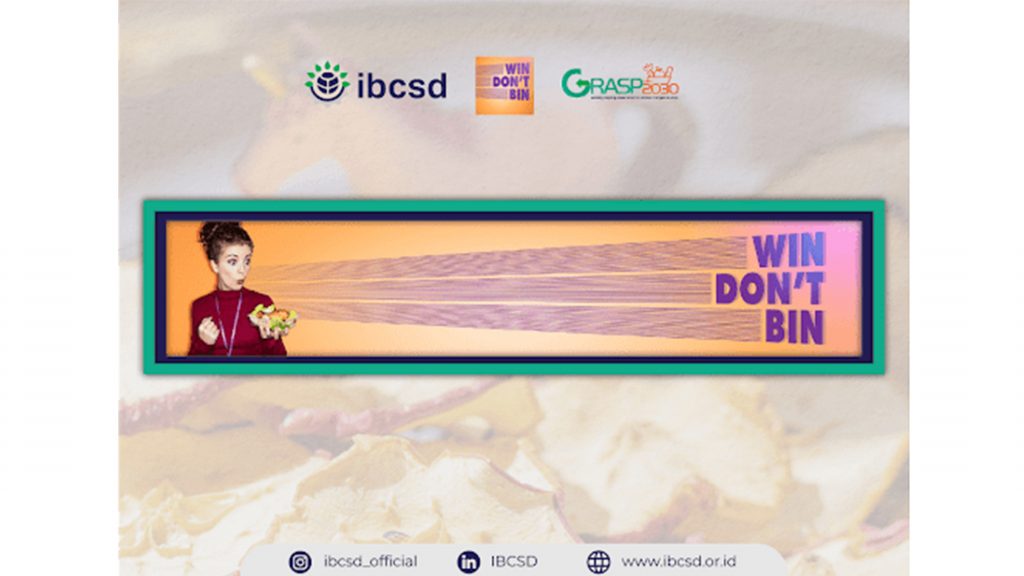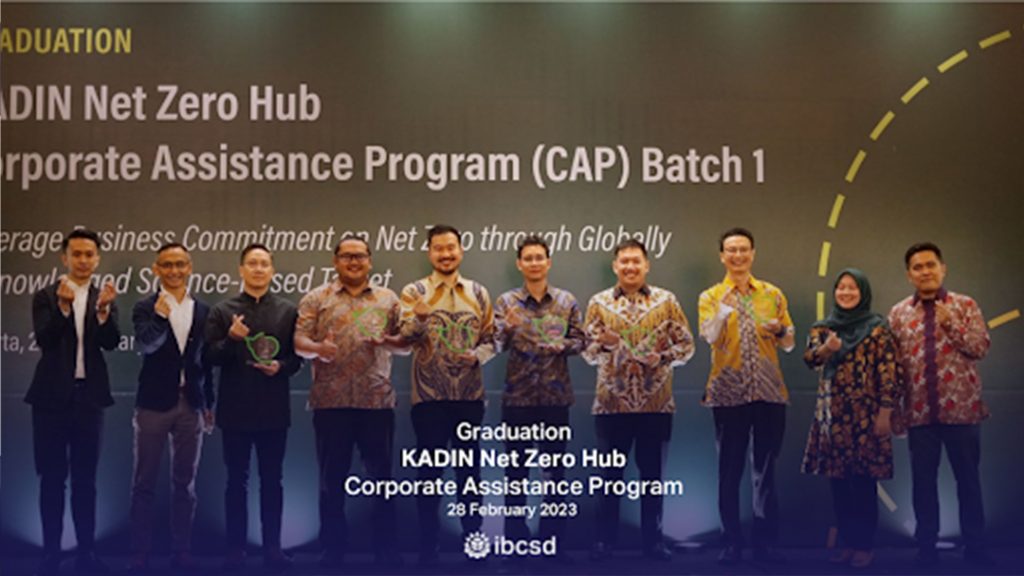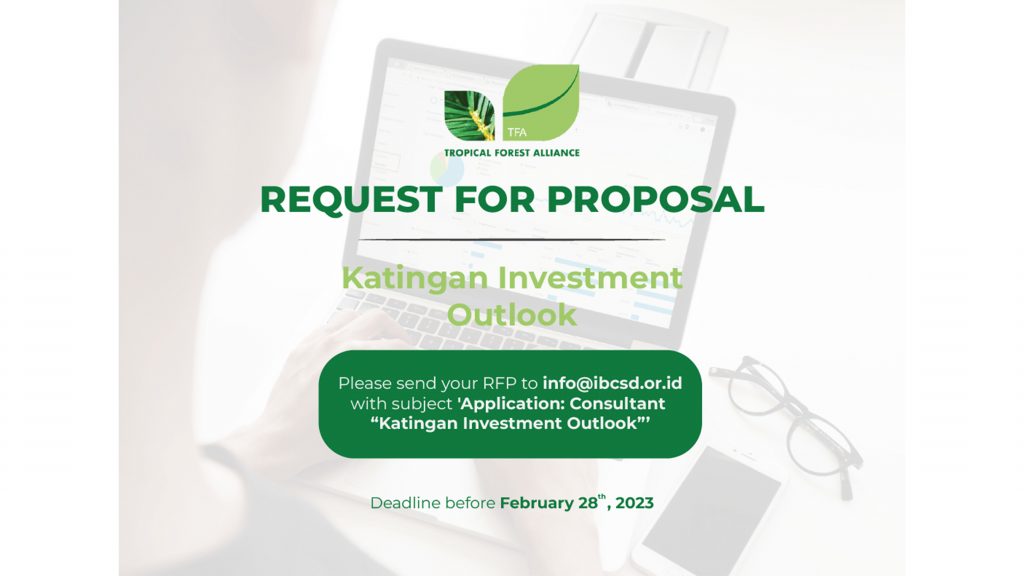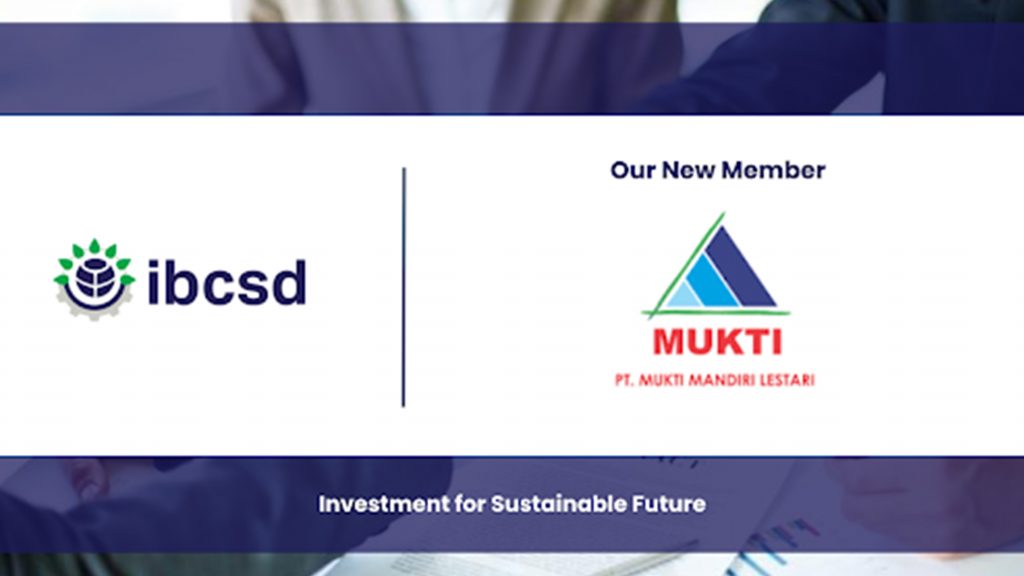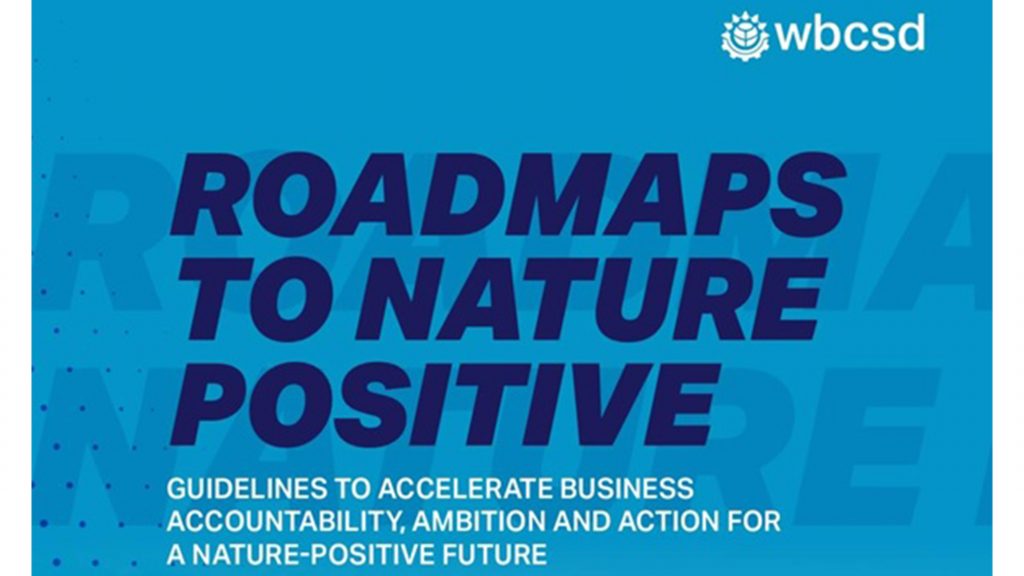The event was an appreciation event for companies that have completed the Corporate Assistance Program (CAP) under KADIN NZH. CAP is a 5-month intensive technical assistance program to help companies inventory and calculate greenhouse gas (GHG) scope 1, 2, and 3 emissions and commit to net zero. Scope 1 is direct emissions, scope 2 is indirect emissions from company consumption, while scope 3 is other indirect emissions generated in the company’s value chain.
CAP facilitates training, 1:1 consultations with mentors, industry best practice sharing sessions, pre-assessment, and guidance and tools that have been adapted to the Indonesian context.
“Many companies in Indonesia have done good sustainability practices. We hope that NZH and CAP can facilitate the good to become great, because they adopt internationally recognized science-based GHG accounting protocols and net zero emission targets,” said Nanda Noor as Sustainable Business & Corporate Engagement Manager of WRI Indonesia.
KADIN Net Zero Hub, which was launched in November 2022 at B20, is KADIN’s real effort in encouraging more private sector involvement in decarbonization. KADIN Indonesia collaborates with WRI, CDP, and IBCSD as key partners to develop KADIN NZH as a platform to build strategic partnerships and accelerate the net zero ecosystem in Indonesia.
“KADIN Net Zero Hub was established to help companies plan, implement, and report concrete actions in achieving net zero, one of which is through the Corporate Assistance Program (CAP) program that we are celebrating today. With this KADIN NZH platform, we hope that Indonesian companies can achieve net zero,” said Octavianus Bramantya as a member of the KADIN Net Zero Hub team.
In the CAP program, companies are assisted to adopt several international standards such as the GHG Protocol and Science-Based Targets Initiative (SBTi) framework. These targets are used to ensure that all company climate actions have a strong science base and are aligned with the 1.5 C pathway so as to reduce the possibility of worse impacts from the climate crisis.
“SBTi is a standard that has been used globally by more than 4,600 companies from various sectors. By aligning science-based emission reduction targets through SBTi, companies in Indonesia can not only contribute to climate change, but also open up various business opportunities and increase competitiveness with peers in the region and related sectors,” said Dedy Mahardika as SBT Engagement Manager, SEA and Oceania from CDP.
The companies that have completed the CAP program recognize that this mentoring is very important for the private sector in Indonesia. The ten companies are PT Ever Shine Tex Tbk, PT Pan Brothers Tbk, PT Chemstar Indonesia Tbk, PT Avia Avian Tbk, PT Omega Mas, PT Buana Triarta, PT Honicel Indonesia, PT Samora Usaha Makmur, PT Indo Oil Perkasa, and PT Hakiki Donarta. Among the 10 companies, there were 4 companies that successfully delivered science-based net zero commitments, namely PT Pan Brothers, PT Samora Usaha Makmur, PT Honicel Indonesia, and PT Ever Shine Tex. In addition, PT Indo Oil Perkasa as an MSME has successfully submitted a net zero target to be validated by SBTi.
“Both markets and investors are turning to businesses that are ambitious about climate change because it not only reduces environmental and social impacts, but also ensures the future viability of the business itself. By joining NZH, companies can get direct assistance to develop and initiate strategies in achieving climate targets, especially towards net zero,” said Indah Budiani as Executive Director of IBCSD.
Going forward, NZH Chamber of Commerce will continue the CAP program to help more companies reduce their carbon emissions. Currently, 80 companies have expressed interest and 68 of them have signed a memorandum of agreement to join KADIN NZH.
Below are excerpts from the companies that have joined the CAP program under KADIN Net Zero Hub:
Michael Sung, Director of PT Ever Shine Tex Tbk: “NZH CAP helps us to analyze more deeply our emissions from our production process and supply chain. The clarity helps us to adjust our strategy both from energy efficiency, renewable energy and procurement, to go net zero.”
Erik Hendra, Manager of PT Buana Triarta: “In accordance with our company’s vision and mission, which is to become an ambassador for Indonesia’s forestry resources by maximizing the added value of forestry products through good business operations and an integrated supply chain and ensuring business and industry sustainability through market research and creative product development, we fully support the Net Zero Hub program and contribute to reducing carbon emissions as a sense of our concern for the sustainability of the ecosystem which is currently under repair.”
Tanu Yota, Center of Technical & Technological, Excellence Director and Business Unit Head of Samora Group: “As something new, the knowledge of Samora Group’s Net Zero Carbon (NZC) team still needs to be scaled up to all subsidiaries. Learning from the CAP attended by the NZC Corporate team, Samora Group is consulting with KADIN Net Zero Hub so that internal training can be facilitated for all NZC teams in all our subsidiaries. So that the NZC program can be successful.”
Wenty Rasjid, Corporate Secretary of PT ChemStar Indonesia Tbk: “As one of the textile chemical manufacturers in Indonesia, PT. ChemStar Indonesia Tbk. sees that climate change is one of the challenges that the world is facing. One of the causes of climate change is GHG emissions produced by the industrial sector. Therefore, PT ChemStar Indonesia Tbk. is encouraged to commit to net-zero to reduce carbon emissions. With the assistance and guidance through KADIN NZH CAP, PT ChemStar Indonesia Tbk. has started to calculate the company’s carbon footprint and develop a strategy to reduce it.”
***
Contact:
Sakinah Ummu Haniy, Senior Communications Coordinator WRI Indonesia, [email protected], +62-813-8343-5507
Fitriannisa Soegiharto, Communications Manager CDP, [email protected], +62813-8095-9299
Nurina Izazi, Communication Manager IBCSD, [email protected], +62-813-3261-4268
